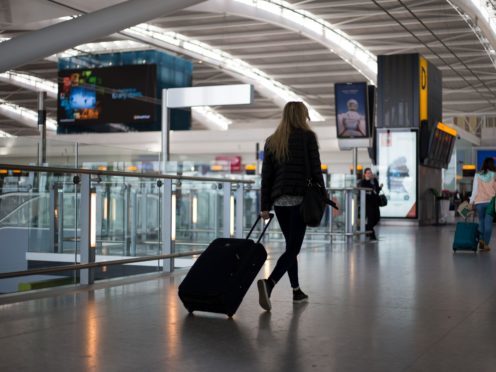New rules to cut bogus travel sickness claims will come into force before the summer holiday season, the Government has announced.
A loophole believed to have led to a spike in the number of false claims will be closed in the coming weeks.
Under existing regulations the legal costs of defending civil claims for sickness overseas have not been capped, meaning they could far exceed the value of the payouts sought.
This discouraged travel firms from challenging compensation bids and is blamed by the travel industry for tens of thousands of UK holidaymakers making claims – typically worth around £3,000 to £5,000 each – despite reported sickness levels in resorts remaining stable.
Making defence costs predictable will assist tour operators in challenging bogus claims, according to the Government.
Justice minister Rory Stewart said: “Claiming compensation for being sick on holiday, when you haven’t been, is fraud. This damages the travel industry and risks driving up costs for holidaymakers.
“This behaviour also tarnishes the reputation of British people abroad. That is why we are introducing measures to crack down on those who engage in this dishonest practice.”
Dozens of firms have been set up in recent years to encourage people to make sickness claims.
In October last year Deborah Briton and partner Paul Roberts from Wirral, Merseyside, were jailed at Liverpool Crown Court for making fraudulent claims.
Briton was sentenced to nine months in prison and Roberts was handed a 15-month jail term.
Mark Tanzer, chief executive of travel trade organisation Abta, said: “False sickness scams have been costing the travel industry tens of millions of pounds and damaging British tourists’ reputation abroad.
“Closing the legal loophole before the summer should lead to a reduction in the number of false claims. We encourage the Government to keep this matter under review and continue to pursue a ban on cold calling by claims management companies in relation to sickness claims.”
A Thomas Cook spokesman said: “This is good news for our customers, many of whom we know have been targeted by companies whose only aim is to profit from persuading holidaymakers to submit fraudulent sickness claims.
“We’ve worked hard to protect our holidays and our customers from this criminal activity and we’re pleased the Government has acted swiftly to crack down on the companies responsible.”
